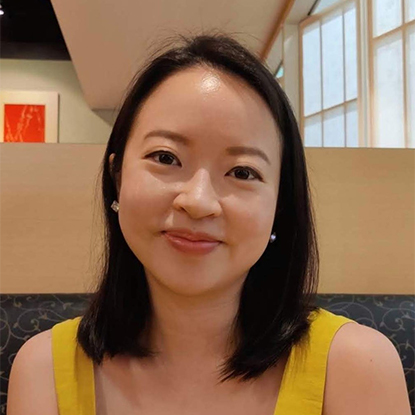Taking charge of your finances and achieving financial independence may be more doable than you think.
Women in Singapore are not shying away from pursuing financial independence. 64.2% of ladies in Singapore are working or seeking work, comparable to 77.2% of men. Around a third of senior leadership positions in the workplace are also occupied by women.
Nonetheless, even if you’re a woman earning your keep or with savings squirrelled away, achieving financial independence could still be a tall order if you’re not intentionally managing and growing your assets. We break down the essentials, through speaking to five Singaporean women (aliases used for privacy) at various points of their journeys towards financial independence.
Start managing and saving money like a pro with SingSaver’s weekly financial roundups! We dole out easy-to-follow money-saving tips, the latest financial trends and the hottest promotions every week, right into your inbox. This is one mailer you don’t want to miss.
Sign up today to receive our exclusive free investing guide for beginners!
Setting goals
The first step towards achieving your goals is, naturally, to set them. These vary with life stages and personal priorities, so don’t feel a need to compare yours to those of others. Here are some categories of goals you can consider.
Lifestyle goals
Your aim may be to support your preferred lifestyle without debt, and to be able to enjoy pursuits that bring you meaning.
To Deirdre, who works in the public service, financial independence means having enough to maintain her current lifestyle. She also values having enough to travel. Similarly, to education specialist Nadine, “having one long holiday a year where I don’t look too closely at receipts” is important.
Emergency goals
Helen, a marketer, emphasises being financially prepared for emergencies and medical bills.
It’s advisable to aim for readiness in unforeseen situations. A general guideline for an emergency fund is six to 12 months of expenses.
Life-planning goals
Goals can evolve in tandem with your journey through seasons of life. Women often have to take into account how children affect their financial goals should they come along, and when they leave the nest! Thinking about how to support other family members, such as elderly parents, might be a factor too.
For partnerships director Leticia, who has a young daughter, becoming a mother led to a shift in her goals. Unlike before, when she was mainly aiming to have enough for retirement, she perceived that she needed to plan for stages of life that she was to go through with her child.
“I realised that our finances stretch beyond ourselves. Now with a child, I realised that more planning is needed for different stages of life,” she said.
Meanwhile, marital therapist Wanda, whose children are now working adults, has focused on clearing her mortgage and building a passive income.
As part of her plan while moving towards semi-retirement, she’s also ensured that her investment portfolio contains instruments she can quickly convert to cash when needed.
Overcoming challenges
After taking stock of your goals, challenges may arise as you try to take steps towards them. The ladies shared how they tackle some common issues.
Budgeting
Setting aside enough savings can be difficult in itself, especially with the incessant bombardment of ads and social media posts on things and places to spend on.
It took Nadine several years of “just living and learning and weighing with myself what I truly needed” to get a better grasp on her finances and self-control. (For example, she realised she didn’t need to spend on five coffees a day!)
When shopping, she also started putting in effort to look for items “that were both functional and aesthetically pleasing”.
Being prudent with her expenditure was likewise an initial challenge for Wanda. Over time, she set a few guidelines for herself: not to be dependent on debt for her purchases but to spend what she had, and to stick to buying only what she needed most of the time.
Unfamiliarity and complexity
One challenge that Deidre and Helen encountered was how complicated investing seemed to be. There were many new terms and numerous financial instruments, which could get overwhelming.
They overcame this by talking with others to clarify their doubts and understanding. Deidre consulted friends on their experiences in investing, and sought out others who were just starting out like her so they could learn together.
Helen asked financial consultants “multiple questions, multiple times”, and took her time to understand the various options.
Deidre was also hesitant to invest large sums of money in case she suddenly needed the cash. Talking to friends who had started small through platforms such as robo-advisors encouraged her to do the same. She put in small amounts first as trials, before deciding if she wanted to invest more later.
Lack of diversification
If you’re just starting to consider how to grow your money, it may seem tempting to place your eggs all in one basket (i.e., bank or instrument) for convenience. But that can lead to higher risks and losses.
After understanding this, Wanda pursued diversity in her portfolio in terms of investments and financial advisors with different approaches, though this also took some trial and error.
Sustainable strategies for financial independence
Applying sound and sustainable strategies over time can help you make steady progress towards achieving financial independence.
Examine your situation and resist trends
Self-awareness is the first step, advises Helen. As every woman’s personality, priorities and circumstances are different, knowing yourself and your attitude towards your finances is critical.
When you know what’s important to you, you’ll be able to resist spending on trends just for the sake of it.
When Nadine first started work, she found herself spending a lot on fashion. She eventually came to the realisation that there was no need to “jump on the latest fashion bandwagon”. These days, she seeks out pieces that are fashionable, practical and comfortable instead, and advocates that “self-confidence is more attractive than the latest runway styles”.
Don’t delay and develop habits
“Start small but start now,” says Deidre. She recommends finding friends with whom to work towards goals, and to keep each other updated and accountable. Setting deadlines has also helped her to take action.
Wanda suggests saving and investing every month, so these become habits that you don’t even have to think about over time.
Keep engaging
When it comes to working towards financial independence, Letitia’s tip is to “Ask, read and talk about it!”
“Things like investing, stocks, etc. are new concepts to us all and it’s very easy not to want to understand or engage with your financial independence beyond your monthly paycheque. But we have the responsibility to ourselves, and our families, to understand enough to make good financial decisions,” she says.
Continuously engaging with financial concepts and strategies will help you to keep thinking about and progressing towards your goals.
Take a long-term view
How you invest will partly depend on where you are in life and the degree of risk you’re willing to take on board. Wanda’s recommendation is to invest with a long-term view.
“Have a balanced portfolio but you can be a bit more aggressive when you’re younger. As you age, invest in safer instruments and if possible, those that can give you a passive income,” she says.
Conclusion
Achieving financial independence can be within your reach if you set goals, navigate challenges without giving up, and keep taking small steps consistently. It’s always a good idea to enlist a fellow girlfriend for the journey as well!
Find out more about online brokerage accounts using SingSaver’s comparison tool to get started with investing today.
Read these next:
FIRE: Are You Planning Your Early Retirement All Wrong?
Building A S$100,000 Net Worth By 30: Is It Possible?
Beginner’s Guide To CPF Retirement Sums And How To Get There (2022)
Uniquely Singaporean Things We Do To Accumulate Wealth
Top Credit Card Promotions And Deals On SingSaver (February 2022)
Similar articles
Individuals Share How They Overcame Financial Obstacles And Thrived Through COVID-19
Money Confessions: Super Mums Share Their Personal Finance Management Story
School Didn’t Teach Me: What to Do With My First S$10k in Savings
4 Singaporean Female Entrepreneurs Share Their Personal Finance Tips
5 Key Money Moves To Make After Budget 2023
Gender Investing Gap – Should Women Invest Differently?
Financial Independence vs Financial Freedom: What Are You Looking For?
Financial Planning for Women: 4 Things to Do Right Now for Better Financial Health










